Image
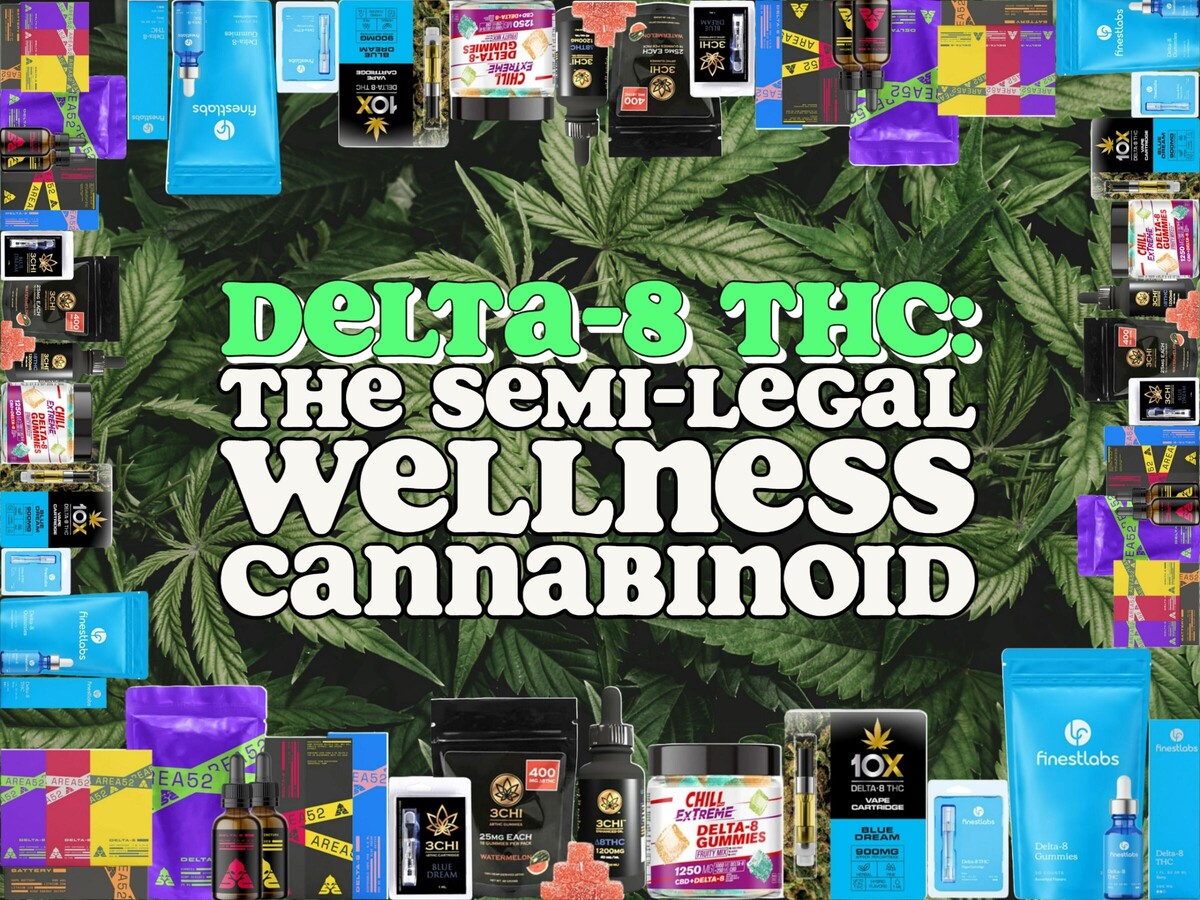

Delta-9 THC, the most abundant cannabinoid in cannabis, is the compound primarily responsible for the plant’s psychoactive effects – it’s what produces the high feeling.
Until recently, Delta-9 THC was illegal in most of the United States and is currently classified federally as a Schedule I substance, a category defined by “high potential for abuse, no currently accepted medical use in treatment in the United States, and a lack of accepted safety for use under medical supervision.”
Of course, with recent recreational legalization by State, the populace has come to see cannabis as it truly is, not the devil’s lettuce, but a mellow alternative to alcohol or medicinal practice.
While Delta-9 THC is all the craze, there is another cannabinoid in cannabis that holds some surprising health benefits and a lot of unanswered questions: Delta-8 THC.
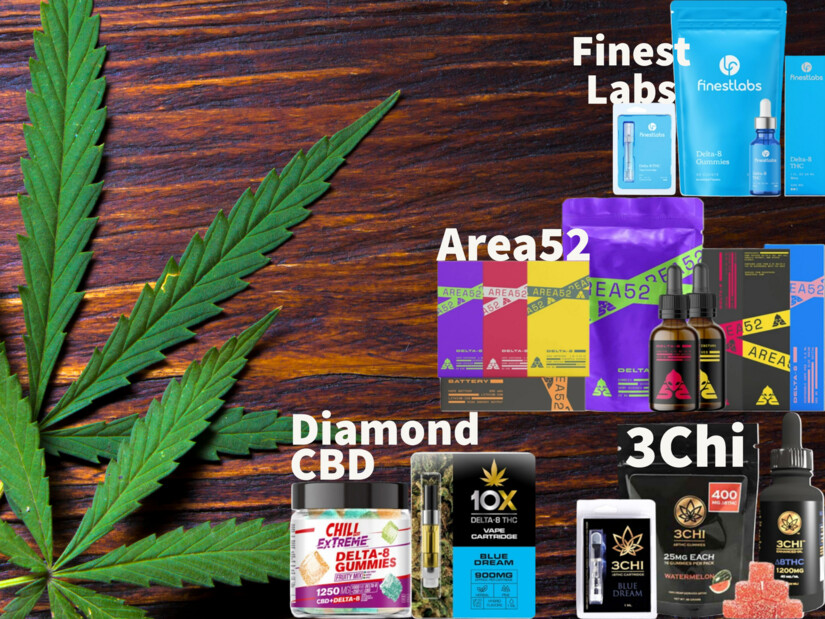 Delta-8 THC products.
Delta-8 THC products.Often referred to as “legal weed,” especially prior to the mass legalization of recreational sales nationwide, Delta-8 THC is like a milder cousin of Delta-9. Delta-8 THC provides a significantly less intoxicating effect while giving a noticeable mood boost.
The uplifting and mildly intoxicating effects of Delta-8 THC have made this cannabinoid the most sought-after compound in the CBD market – a market that saw $4.17B in sales in 2022. But this massive market faces a challenge, legalization.
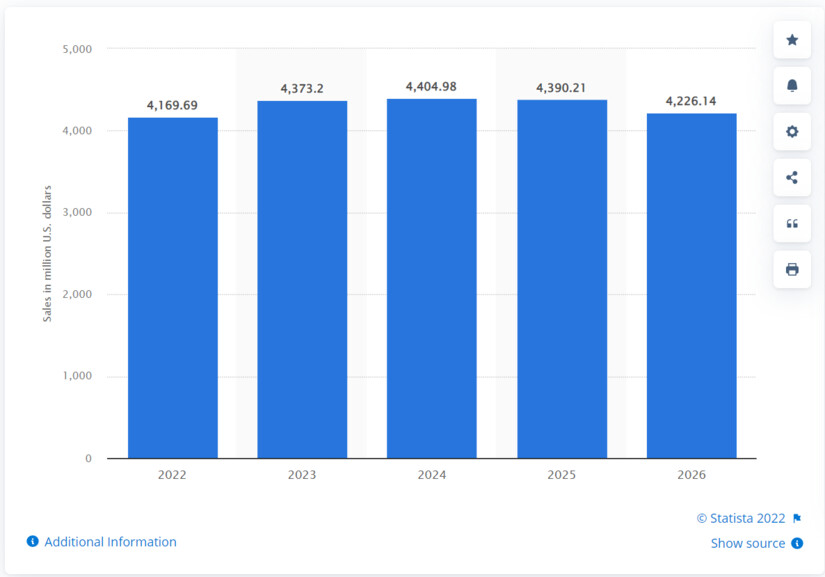 Dollar sales of cannabidiol (CBD) products in the United States from 2022 to 2026. From Statista.com
Dollar sales of cannabidiol (CBD) products in the United States from 2022 to 2026. From Statista.comYes, cannabis is legal in most states. And Delta-8 is legal too, sort of.
In 2018, the USDA Farm Bill removed hemp and hemp seeds from the DEAs controlled substances list. So, as long as the Delta-8 THC is derived from hemp, it’s federally legal.
However, a lack of consumer protections and murky regulations surrounding Delta-8 THC has led to the substance being banned or restricted in 20 states and under review in more.
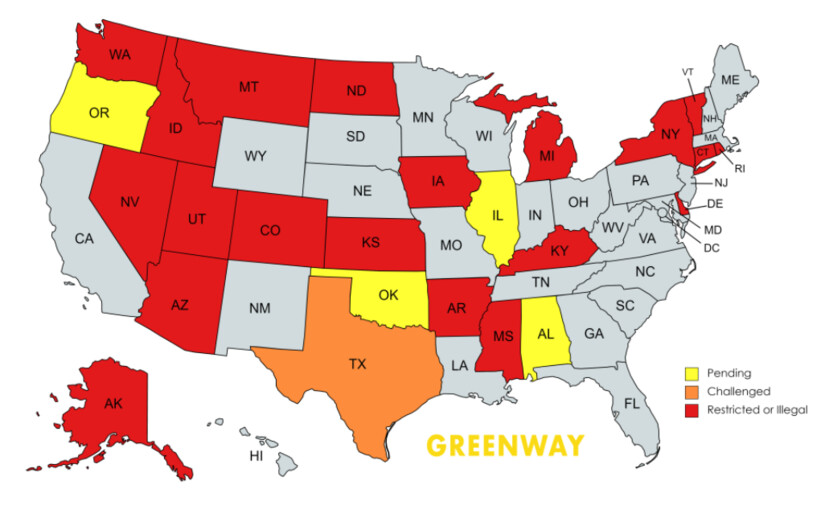 Delta-8 Legality by State. From Greenway Magazine
Delta-8 Legality by State. From Greenway MagazineCurrently, Delta-8 is banned, or sales are restricted, in Alaska, Arizona, Arkansas, Colorado, Connecticut, Delaware, Kansas, Kentucky, Idaho, Iowa, Michigan, Mississippi, Montana, Nevada, New York, North Dakota, Rhode Island, Utah, Vermont, and Washington. (Delta-8 THC can be bought in stores in New Jersey, but it is unregulated.)
But what is it?
Delta-8 THC is a naturally occurring cannabinoid in cannabis that is about “two-thirds” as intoxicating as Delta-9 THC, according to Peter Grinspoon, primary care physician at Harvard Medical School, who spoke to Inverse.com in 2020.
The molecular difference between Delta-9 and Delta-8 is slight but enough to change how it binds to the brain. Unlike Delta-9, which bonds tightly with CB1 receptors in the brain, Delta-8 is slightly altered, and as a result, doesn’t bind as well, explains Gabriella Gobbi, a professor at McGill University’s Department of Psychology.
The CB1 receptors are part of the endocannabinoid system – a network of receptors and chemicals that influence various experiences including mood, pain, sensation, and stress.
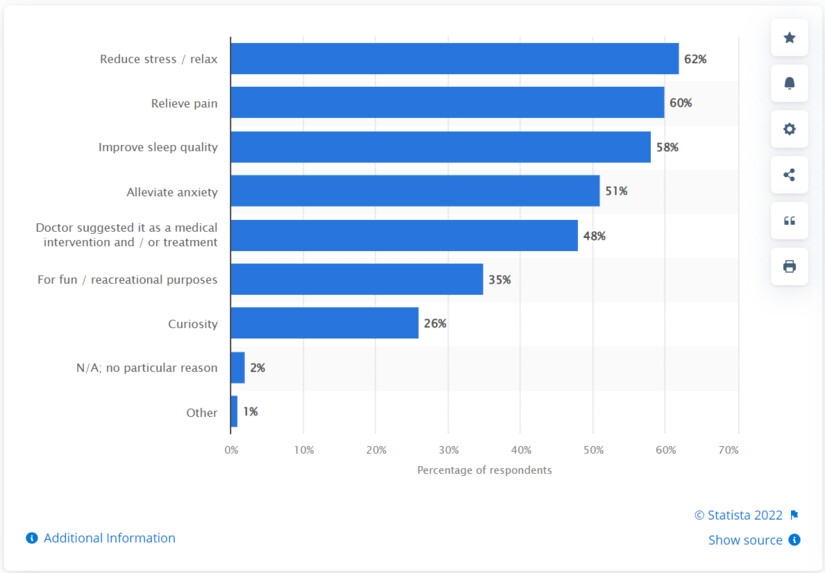 Leading reasons why U.S. adults use cannabidiol as of 2022. From Statista.com
Leading reasons why U.S. adults use cannabidiol as of 2022. From Statista.comUnfortunately, there isn’t much research on Delta-8 THC. (The American Chemical Society published a study on the metabolism of Delta 9 and Delta 8 THC by monkey liver; that was in 1972, so the research really is slim.)
Most of what we know comes from a 1990s study on children undergoing chemotherapy: the study showed that Delta-8 prevented nausea and vomiting associated with treatment. The study also found that the effects of the THC derivative seem to be more energizing and less sedating, as well as have the potential as an appetite suppressant.
Essentially, due to Delta-8s significantly milder intoxicating effects, scientists believe Delta-8 THC might have a larger “therapeutic window” (a dosage high enough to produce positive effects, and too low to produce unwanted effects) than Delta-9 THC. This also means that the needed dosage of Delta-8 required to produce the desired effects will likely be much higher than the typical dosage of Delta-9 THC.
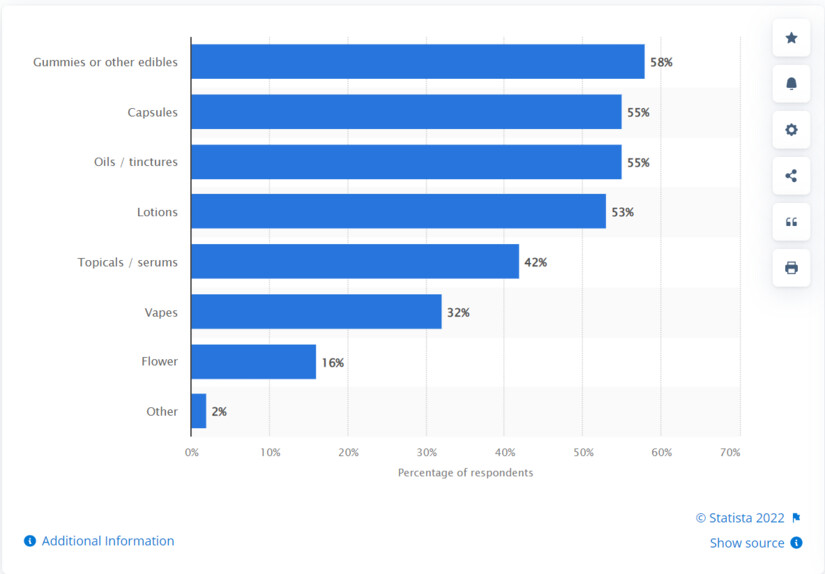 Preferred cannabidiol (CBD) products in the United States as of 2022. From Statista.com
Preferred cannabidiol (CBD) products in the United States as of 2022. From Statista.comAt this point, although the compound looks promising, there is little research to confirm that Delta-8 THC provides therapeutic effects. Along with more research, there is a dire need to clarify the legality of Delta-8 THC and other hemp-derived products.
While legal clarification will benefit the consistency and quality of Delta-8 THC products, the compound certainly will not be a cure-all, a reputation many cannabinoids have acquired as hype outpaces science.
However, the compound holds vast potential as an alternative to Delta-9 and as long as there’s a market for alternative therapy, Delta-8 will be here to stay.
Have you tried Delta-8 THC? What else do you want to know about cannabinoids? Let us know in the comments!
Our reporters will be dedicating time and resources to investigating the roadblocks to mental health accessibility in our town.
Donate to Morristown, NJs local mental health accessibility fund today!
 Scan the QR code to donate!
Scan the QR code to donate!*The 2022 Local News Fund is a program administered by the Local Media Foundation, a 501(c)(3) organization affiliated with the Local Media Association. The program’s purpose is to allow independent and family-owned news organizations to solicit tax-deductible donations from their communities for journalism projects focusing on critical local issues. Contributions to this program are tax-deductible to the full extent of U.S. law; please consult a tax advisor for details.
I would recommend waiting for proper regulation before giving it a try, but if you're too curious for your own good here are some high rated Delta-9 THC products: https://cfah.org/best-delta-8-thc-brands/
*Correction: The above is a link to Delta-8 THC products.